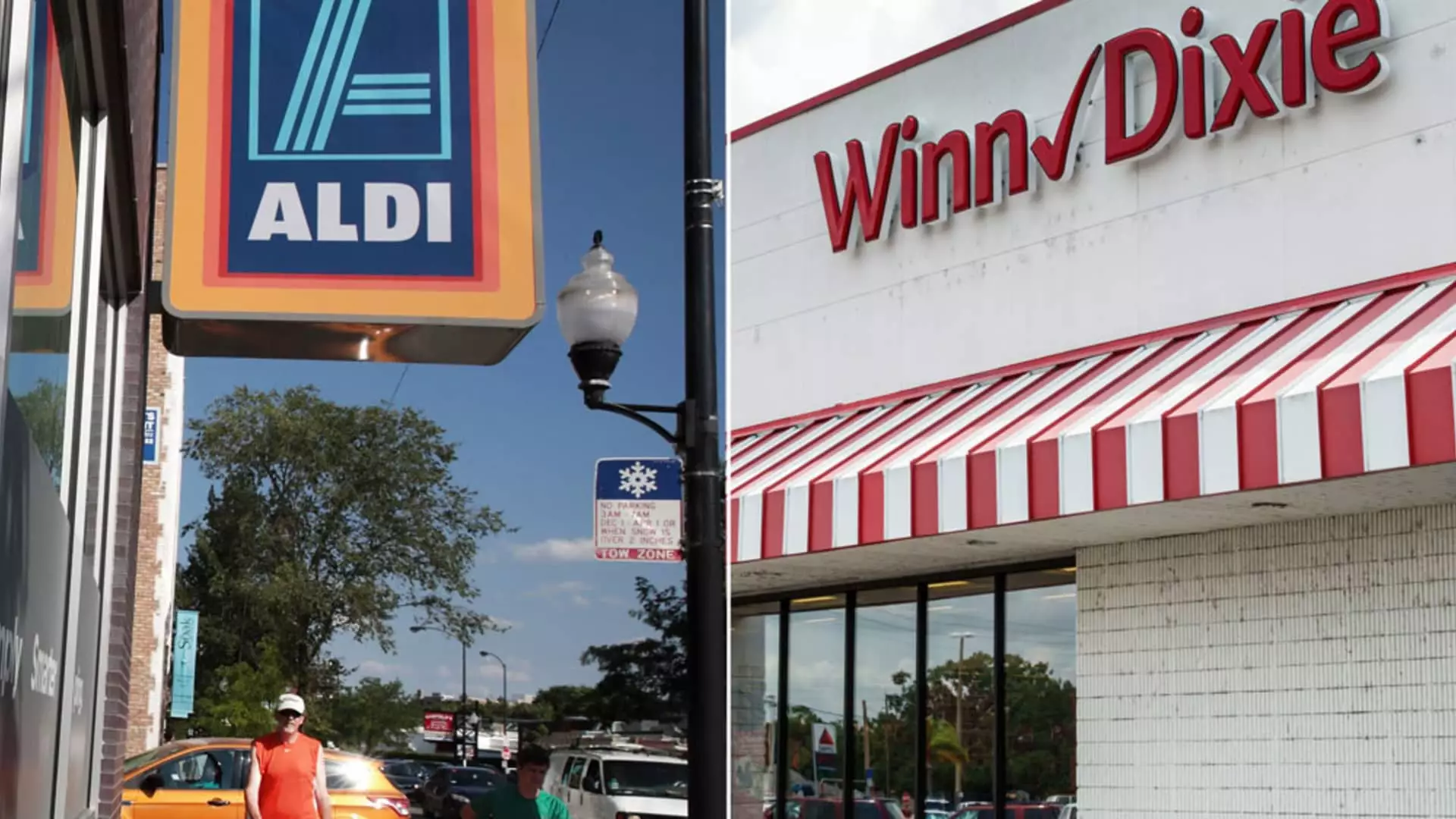In a significant industry shake-up, German-based discount supermarket Aldi has announced plans to acquire approximately 400 Winn-Dixie and Harveys Supermarket locations in the Southern United States. This move will not only involve taking over the operations of these stores but also potentially rebranding them under the Aldi name. With the deal set to be finalized in the first half of next year, Aldi’s aggressive expansion across the country shows no signs of slowing down.
Aldi already boasts over 2,300 stores across 38 states in the U.S. However, the acquisition of these additional locations solidifies its presence in the Southeast region. Meanwhile, the company is also set to open 120 new stores by the end of this year. This move comes at a time when other major players in the industry, such as Kroger and Albertsons, are vying for a larger share of the grocery market. Even e-commerce giants like Amazon and Target are jumping on the bandwagon. As consumers become more mindful of their spending, particularly on non-essential items like clothing and electronics, grocery store competition is getting fiercer.
Embracing Private Label and Cost Savings
Aldi, much like its Germany-based competitor Lidl and Trader Joe’s, heavily relies on its own private label products. In fact, approximately 90% of the products Aldi carries are part of its own brand. This approach allows the company to achieve greater scale and lower costs in various areas such as marketing and supply chain operations. Aldi goes above and beyond to find innovative ways to reduce expenses, including making packaging adjustments like reducing the size of a pasta sauce lid. Additionally, the retailer utilizes electronic shelf labels, which not only save on labor but also reduce material consumption.
As inflation subsides, Aldi may face challenges if consumers revert to their old habits of shopping at higher-priced neighborhood grocery stores or opting for favorite name-brand products. Furthermore, keeping up with competitors’ online options has prompted Aldi to expand its curbside pickup services to more stores. While the company has been successful thus far, it must continue to adapt to changing consumer expectations and habits to maintain its competitive edge.
Aldi’s CEO, Jason Hart, explains the motivation behind the acquisition and sheds light on how the company sees itself fitting into the evolving grocery landscape. By acquiring Winn-Dixie and Harveys Supermarket, Aldi gains access to prime retail locations, a skilled workforce, and an established core business. The Southeast region, which has already experienced significant growth for Aldi, presents additional opportunities for expansion. This acquisition allows Aldi to fast-track its plans and better meet consumer demand in the region.
While the details of the acquisition remain undisclosed, the implications for competitors like Walmart and Kroger, as well as smaller regional grocers, are significant. Aldi’s limited number of stock keeping units (SKUs) and emphasis on simplicity in the shopping experience sets it apart from its competition. By streamlining its product offerings, Aldi achieves higher volume per SKU, driving scale and efficiency in both its business and for its suppliers. This strategy proves to be appealing to value-conscious consumers seeking quality products at affordable prices.
The intense competition in the grocery industry stems from evolving consumer shopping habits and the increasing desire for value. Alternative retail formats, including Aldi, have witnessed rapid growth, disrupting traditional grocery stores. These changes in consumer behavior, coupled with the expanding availability of e-commerce options and the introduction of private label products, have challenged established players to adapt or risk losing market share.
As the pandemic recedes, both in-store and online sales have experienced equal growth. However, looking toward the future, it is anticipated that e-commerce sales will continue to outpace brick-and-mortar sales. Aldi, like other retailers, must adapt to this shifting landscape and invest in its online presence to remain competitive.
Aldi’s acquisition of Winn-Dixie and Harveys Supermarket marks a significant move in the grocery industry. The expansion provides Aldi with a foothold in the Southeast region while presenting opportunities for growth and meeting consumer demand. However, the company must continue to innovate and adapt to changing shopping habits and intensified competition to maintain its position as a disruptive force in the grocery market.


Leave a Reply